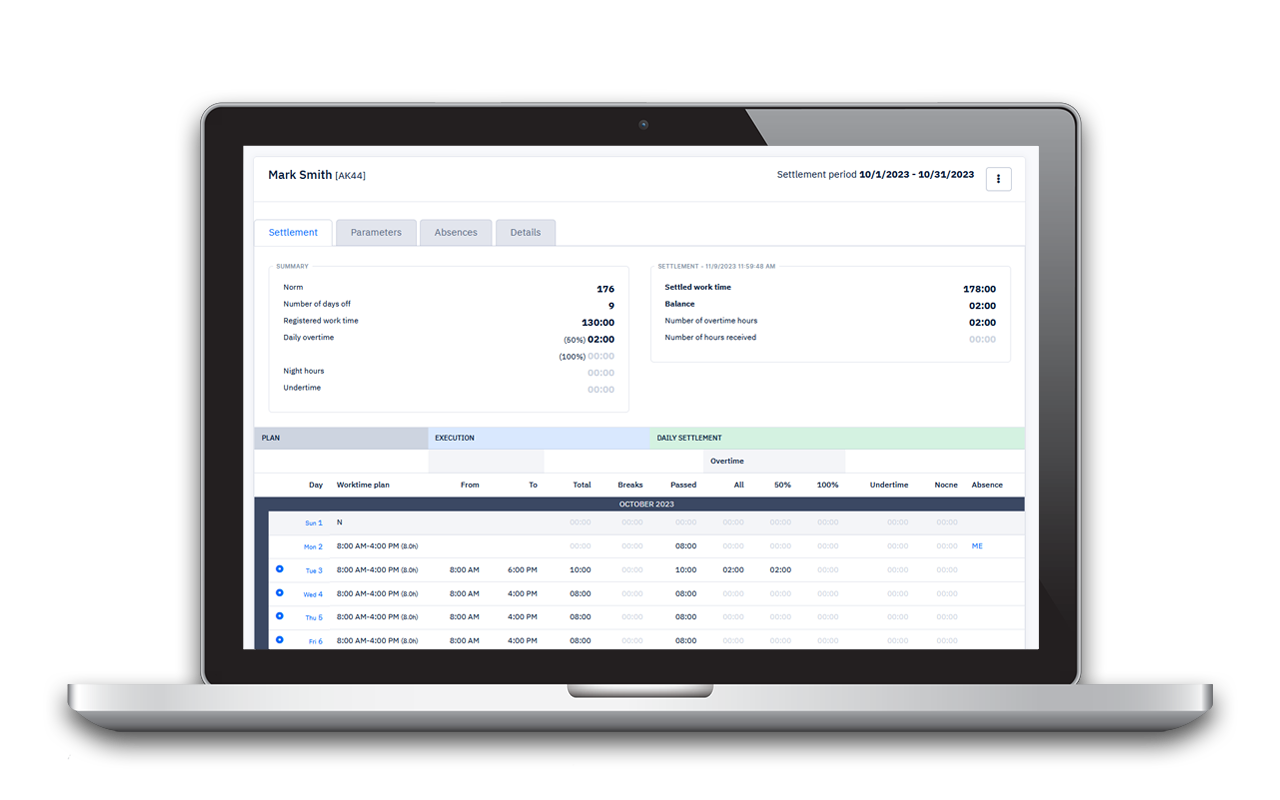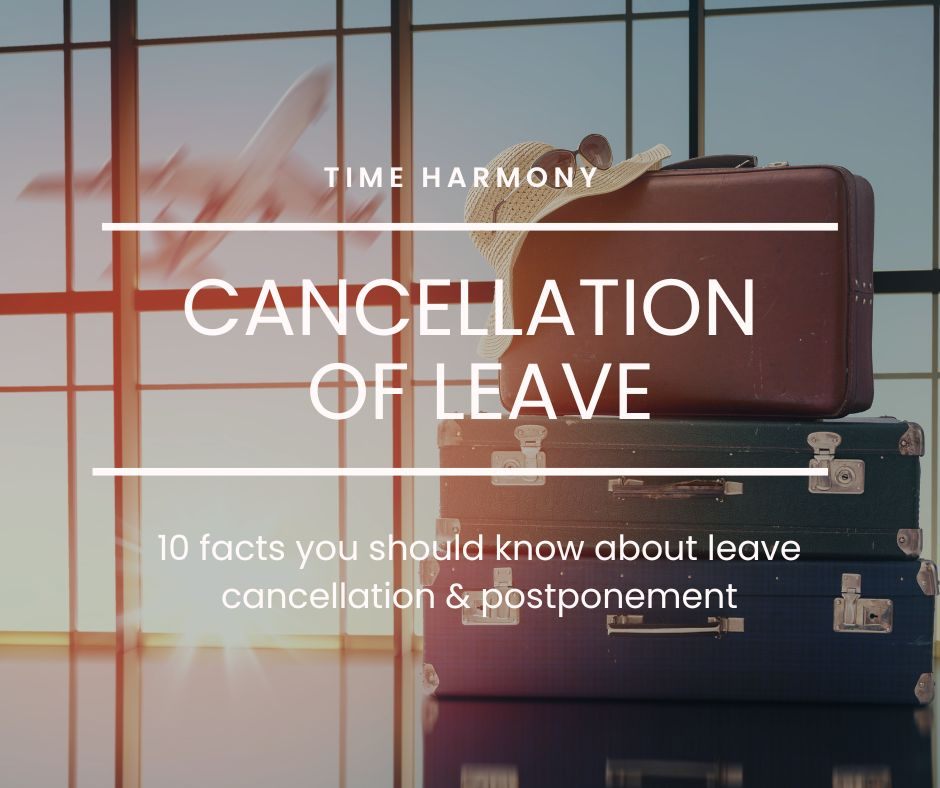An employee is entitled to annual, uninterrupted, paid annual leave. The employer is obliged to grant leave in the year in which the employee acquired the right to it. Unused leave should be granted by 30 September of the following calendar year.
However, there may be a situation when the employer decides to cancel or postpone the employee's leave. The employee himself may also resign from using the leave on the agreed date due to various circumstances.
In this article, we will take a closer look at how the cancellation of leave or its postponement looks from the point of view of the Labor Code and the functioning of the company.

Recall of an employee from annual leave by the employer
The Labour Code allows for a situation in which an employer may recall an employee from holiday and unpaid leave.
There must be important reasons behind the recall of an employee from leave.
The Code does not specify a catalogue of reasons, it only refers to situations where the employee's presence in the workplace is necessary and required by circumstances that cannot be foreseen at the time of commencement of the leave (Article 167 of the Labour Code).
The employer's decision is treated as an official order and failure to comply with it may be considered a serious breach of employee duties.
Therefore, the recall from leave obliges the employee to report to work on the date set by the employer. However, it should be remembered that the date of return to work from leave should take into account the time needed by the employee to return from vacation.
Form of dismissal from leave and date of return to work
The labour law also does not specify the form in which the employee should be presented with an appeal from leave.
An order to recall an employee from leave can be done by phone, e-mail, written or even by text message – it is important that the communication is effective and the employee can read its content.
The unused part of the leave can be taken by the employee at a later date. You can find out more about unused leave, whether it expires, when it should be used and when you are entitled to a cash equivalent for unused leave in our article.
Compensation for recalling an employee from leave
Article 167 of the Labour Code states that the employer is obliged to cover the costs incurred by the employee in direct connection with the recall from leave. These expenses must be documented by receipts or other form of confirmation (e.g. plane or train ticket, paid hotel stay). The expenses should also include the costs of the employee's family's holiday, if as a result of the appeal family members (e.g. children) could not continue the holiday.
Reimbursement of holiday costs incurred by the employee and compensated by the employer in connection with the recall from the leave does not give rise to tax revenue on the part of the employee.
If, on the other hand, the employer has agreed to cover additional costs that are not directly related to the cancellation of leave, then they constitute additional taxable income.
For the employer, on the other hand, the reimbursement of obligatory costs related to the employee's recall from leave are mandatory and tax-deductible costs.
Additional costs not directly related to the reimbursement of the employee's expenses will not be tax-deductible.
Recalling an employee from unpaid leave
Unpaid leave is granted only at the written request of the employee. For this time, the employee is exempt from the obligation to perform work and does not receive remuneration. However, the employment relationship remains preserved, as well as the employer's right to recall the employee from leave.
Cancellation of leave by an employee
What does the issue of leave cancellation look like if it is initiated by the employee?
Cancellation of leave by an employee can happen for various reasons. This can be influenced by a change in personal plans or sudden random events.
The employee has the right to request the cancellation of the planned leave, but such a change requires the approval of the supervisor.
The employer must take into account the organization of work in the company and how a change in a previously planned holiday plan will affect the continuity of work.
A cancelled holiday is not lost under any circumstances. The employer is obliged to grant the employee leave at a different time.
Postponement of the holiday date
Postponement of the holiday date agreed in the holiday plan or agreed by the parties may take place on the initiative of both the employer and the employee. However, the procedure in both cases is different.
Let's take a closer look:

Postponement of the leave date by the employer
The employer may postpone the employee's leave if there are justified circumstances that threaten the proper functioning of the enterprise due to the employee's absence.
The employer should immediately notify the employee of the postponement of the planned holiday and the regulations do not provide for the obligation to reimburse any costs.
The employer's instruction to postpone the leave is binding on the employee.
Postponement of the leave date by the employee
If the change of the leave date is initiated by the employee, it must be justified by the employee's request as a result of important reasons. The legislator has not defined what reasons should be considered important, it is customary to assume circumstances related to the employee's family situation, but also other significant obstacles preventing the employee from going on holiday. The catalogue of reasons has not been defined by the legislator.
The employer is not bound by the employee's request.
Postponement of the leave date at the employee's request may take place only with the consent of the employer.
Postponement of leave for reasons justifying absence from work
According to the Labour Code (Article 165), if an employee cannot start the leave on the agreed date for reasons justifying the absence from work, the employer is obliged to postpone the leave to a later date. The catalogue of reasons defined in the Act is as follows:
- temporary inability to work due to illness
- isolation in connection with an infectious disease
- military exercises
- maternity leave
Summary
To sum up, the provisions on granting, cancelling, postponing and cancelling holiday leave by the employer and the employee are clearly defined in the Labour Code. Although an employee is entitled to annual, uninterrupted, paid leave, various circumstances can affect changes in vacation plans. Both employers and employees need to keep their obligations and rights under the law in mind to ensure legal compliance and maintain good relationships in the workplace. Compliance with procedures and mutual understanding can significantly affect the satisfaction of both parties, as well as the efficiency and stability of the company's operations.

Easily manage your company's working time

